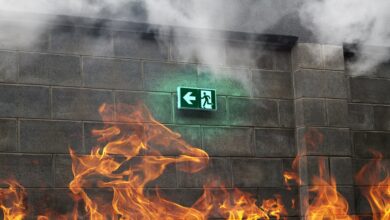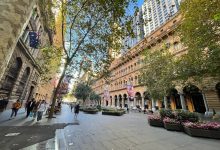
Role of a manager for a one-off major project
Building managers are often placed under pressure by bodies corporate to perform many additional tasks through the wide ranging vagaries of caretaker agreements.
An item that stands out is the direction by committees for a manager to oversee and co-ordinate tradespersons for one-off major projects, in this example painting a high-rise building. caretaker agreements may have a phrase “the manager must supervise tradespersons…” or similar. “Supervision” what is supervision? The common sense, fair and reasonable interpretation of supervision by the manager is clearly for day-to-day normal operations; where a pipe bursts, a plumber is called; where a light fitting needs replacing, an electrician is called; the pool needs cleaning, and so on.
Check out the latest issue of Resort News to read the full article.
From my experience as a body corporate manager and consultant with a past portfolio of 53 complexes, the normal process for one-off major projects is one of co-operation between the committee and the manager, acknowledging that there will be a much higher workload imposed on the manager through a one-off major project than what is considered usual and day-to-day for operations through a caretaker agreement.
Recognising also the building manager is not a project manager within the scope of the agreement. there is a recognition within the body corporate/manager relationship in the body corporate sector that any one-off major project that results in extensive additional duties for the manager, does require an appropriate level of compensation for the manager. This promotes a harmonious and respectful on-going relationship. let us consider a legal interpretation of “supervision”…
“Direct supervision generally means to be physically present, or within an immediate distance, such as on the same floor, and available to respond to the needs of something or someone. Precise definitions vary by context and governing entity. For example, in the context of employment law, it may involve defining the degree of control over a worker’s tasks. Direct supervision on a job may be defined by the degree of supervision by a person overseeing the work of other persons, by which the supervisor has control over and professional knowledge of the work being done.”
Clearly a manager is not “overseeing” a tradesperson / painter with “professional knowledge” in that area; and also by definition and exclusion, “supervision” is not…
• Co-ordinating/project managing a major one-off project, or
• Scheduling work for a major one-off project, or
• Performing any extra-ordinary or additional work or tasks incidental or as a by-product of a major one-off project
These are all additional tasks requiring a multitude of time, skills, preparation and execution.
Private lots – Given the nature of this example project, painting the exterior of a high-rise building, there is a need for tradespersons to enter private lots to gain access to balconies and common property. The manager has no immediate authority to enter any property that is not common property, even where a lot is let by the manager, except of course where the private lot is managed by the manager and vacant. The manager will need to carry out the following extra-ordinary tasks outside of common property usual duties-
• Organise authority forms for tradespersons to enter private lots
• Co-ordinate private lot keys and access times for tradespersons
• Be available for access to occur for private pots, for owner supervision
• Be available when exiting, to ensure clean and tidy exit of private lots
• Ensure private lots are locked/secure
These are all additional tasks that may occur for some days or weeks to job completion, initiated by the major project.
Common property – There will also be additional one-off tasks on common Property that impose considerable staff, time and logistical dedication for the manager. The manager will need to-
• Co-ordinate entry to common property
• Co-ordinate tradespersons and their equipment around regular day-to-day duties
• Consider disruption to occupiers and deal with concerns
• Liaise with the committee and tradespersons over concerns
• Perform extra-ordinary and additional work and tasks incidental to supervision on common property with the one-off project
• Perform additional cleaning
Additional fees – Managers and the committee will normally agree to a set fee for the extra work, this can be based on the major project cost as a percentage, or an hourly rate with the manager keeping a log of the extra duties. Please keep in mind that painters may simply walk off the job if the co-ordination, access and relationship is not performed cordially, and I can vouch for that fact.

AccomNews is not affiliated with any government agency, body or political party. We are an independently owned, family-operated magazine.







